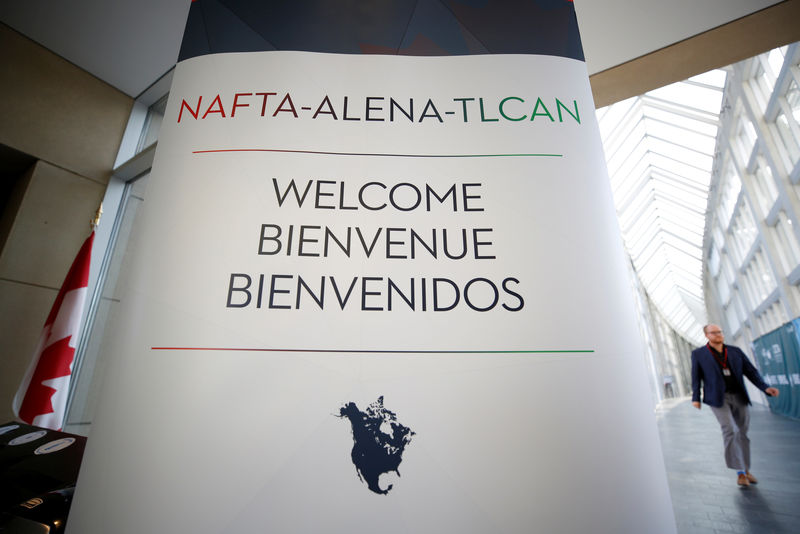(Adds Canada saying not expecting U.S. proposals on auto content)
By David Ljunggren and Lesley Wroughton
OTTAWA, Sept 23 (Reuters) - Talks to update the North American Free Trade Agreement looked set to intensify on Saturday as U.S. negotiators prepared for the first time to unveil their demands on some of the Trump administration's most challenging issues.
Teams from the United States, Mexico and Canada kicked off the third of seven planned rounds of discussions in Ottawa amid warnings from trade experts that time was quickly running out to seal a deal by the end of the year as planned.
The United States wants to strengthen rules of origin for autos, which dictate how much of a vehicle's components must originate from within North America to qualify for tax free status under NAFTA.
Canada's chief NAFTA negotiator on Saturday said he did not think the United States would unveil specific proposals for autos rules of origin in Ottawa.
"We're not expecting that, no," Steve Verheul told reporters on his way into the talks, predicting the pace of the talks would nonetheless intensify.
Beefing up rules of origin is one of Washington's main goals for modernizing NAFTA and Verheul's remarks about a lack of specific U.S. demands means there are only four rounds left to tackle the topic.
U.S. President Donald Trump wants more U.S. content in autos, citing trade deficits of $64 billion with Mexico and $11 billion with Canada. Trump, who says NAFTA is weighted against his country, has threatened to walk away from the agreement unless he gets the changes he wants. chief negotiator John Melle said ahead of the talks that his team would introduce the difficult provisions in Ottawa talks that are due to last for five days. tricky issue is labor, given complaints from U.S. and Canadian unions that Mexico's low wages give it a manufacturing advantage.
The United States is also expected to present text proposals on intellectual property and investment, several sources with knowledge of discussions said. Other areas of disagreement include dispute settlement mechanisms.
Canadian and Mexican officials, as well as U.S. businesses, have already rejected a proposal by Washington to include a five-year sunset provision in the updated agreement, saying it added uncertainty to business investment planning.
Canadian government figures are cautious when asked whether the end-December timetable is realistic.
"We want, not a quick deal, but we want a good deal and a fair deal," Innovation Minister Navdeep Bains told the Canadian Broadcasting Corp on Friday.
